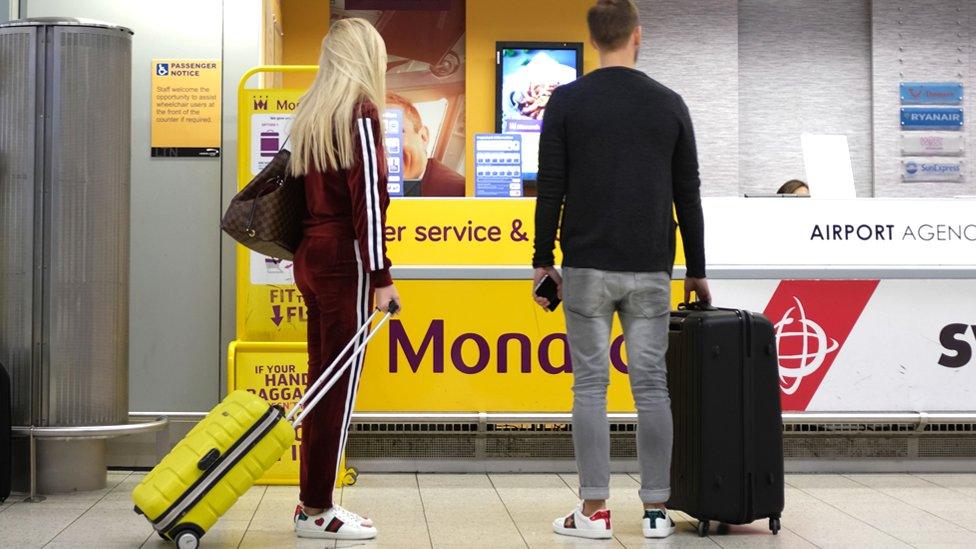Monarch: Four reasons behind its failure
- Published
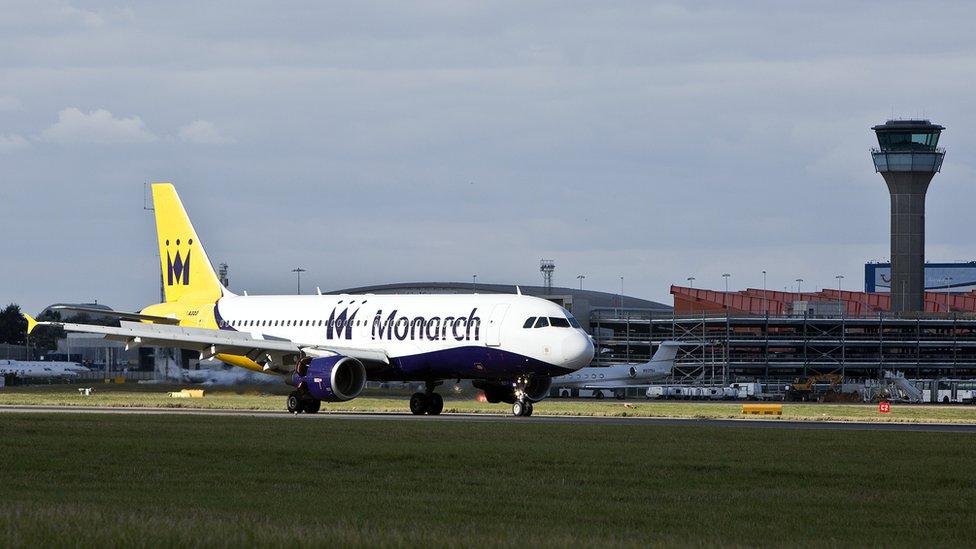
The collapse of Monarch Airlines has affected hundreds of thousands of customers and cast doubt over the future of its 2,100 staff.
The carrier's been around for 50 years and was once one of the leading airlines to fly people on their package holidays around Europe.
"It's a sad day really for chartered airlines, obviously a lot of history there. People will have some fond memories of flying with Monarch over the years," says Oliver Clark, senior reporter with Flight Global.
We look at four reasons why the airline collapsed.
1. Fuel prices
Monarch's problems can be summed up very succinctly: Falling revenues and rising costs, says Blair Nimmo of the airline's administrator, KPMG.
Many of the big costs of running Monarch, such as fuel and handling charges, are denominated in dollars.
But the pound has fallen by about 10% against the dollar since the Brexit vote, meaning the airline is having to pay more to buy its fuel.
At the same time, Monarch's sales have fallen due to increased competition.
"Prices have been depressed for some time," says Mr Nimmo. Monarch's revenues fell £100m last year, he added.
2. Competition from rivals
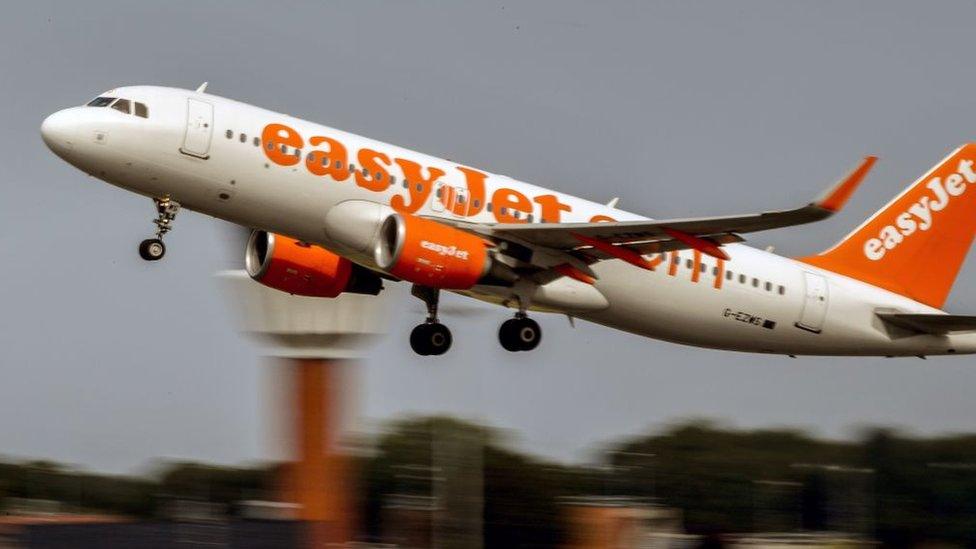
One of the key problems besetting Monarch was the sheer amount of competition it faced in the low-cost market.
"They were trying to be a low-cost carrier - a bit like EasyJet or Wizz - but there just isn't enough room for all of these airlines in the same market," says Flight Global's Mr Clark.
"There's just too much competition... and Monarch wasn't really offering anything new."
Put another way Monarch's demise is a "symptom of over-capacity and overly-aggressive pricing", according to Neil Wilson, senior market analyst at ETX Capital.
3. It moved away from long-haul flights
Greybull, which took control of Monarch in 2014, decided it would move away from long-haul holiday flights for some of its package holidays.
"[It could] become a low-cost airline of the model that is used by say Ryanair and EasyJet, but therein lies a challenge," said John Strickland of JLS Consulting.
"These are big established airlines, real giants. This is a relative minnow in its size compared to these airlines.
"Just recently it said it wanted to go back into that (long-haul) market. Now it all looked a little bit late, a little bit uncertain in terms of management planning."
Mr Clark points out that rivals such as Norwegian have moved faster.
"They've experimented with long-haul, low-cost flights on the transatlantic and that's something that Monarch perhaps might have looked to have done instead of concentrating on those traditional short-haul markets."
4. Terror attacks in Egypt and Turkey
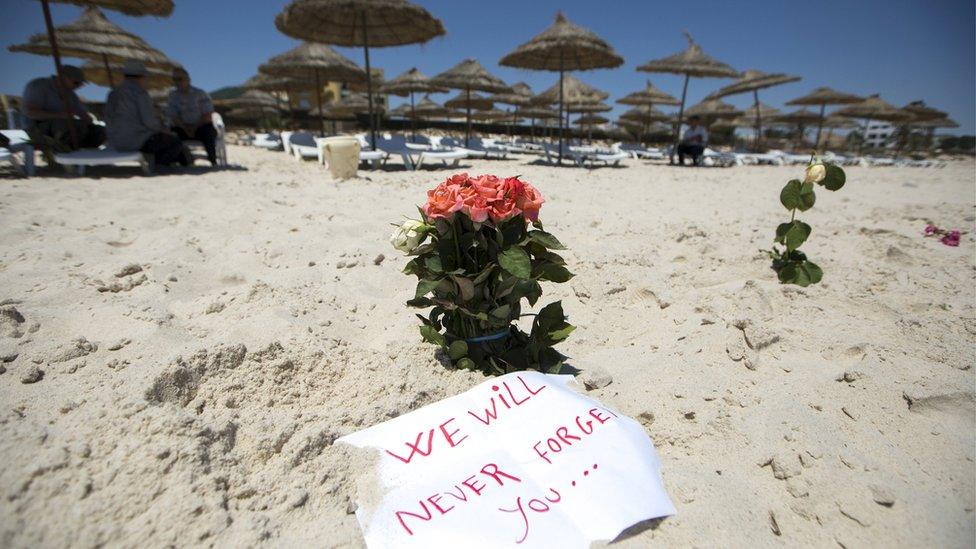
Terror attacks in Egypt, Turkey and Tunisia have seen travel firms and airlines concentrating their efforts on Monarch's traditional stamping grounds - Spain and Portugal - upping the pressure on the airline still further.
"Airlines have seen terror attacks dry up demand for markets like Egypt and Turkey," says Mr Strickland.
He says this has meant that Monarch has had to reduce prices for travel to its key markets.
"That's meant with overcapacity prices have come down, which has only worsened the situation in terms of Monarch's own revenues," says Mr Strickland.
- Published2 October 2017
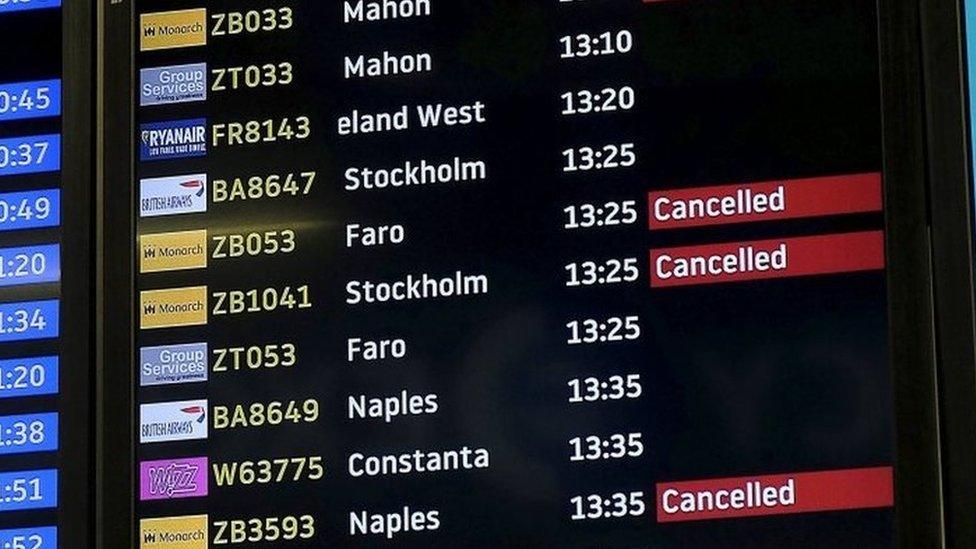
- Published2 October 2017
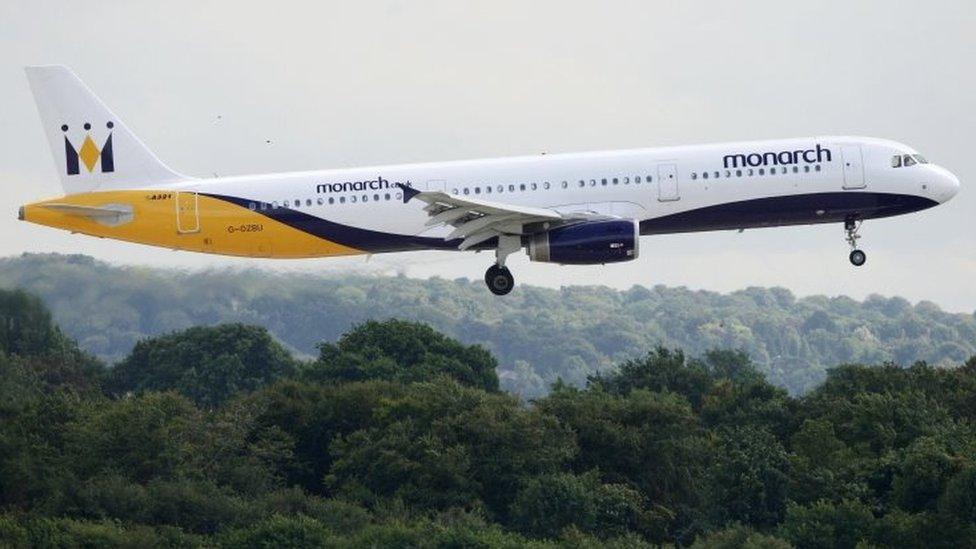
- Published2 October 2017
